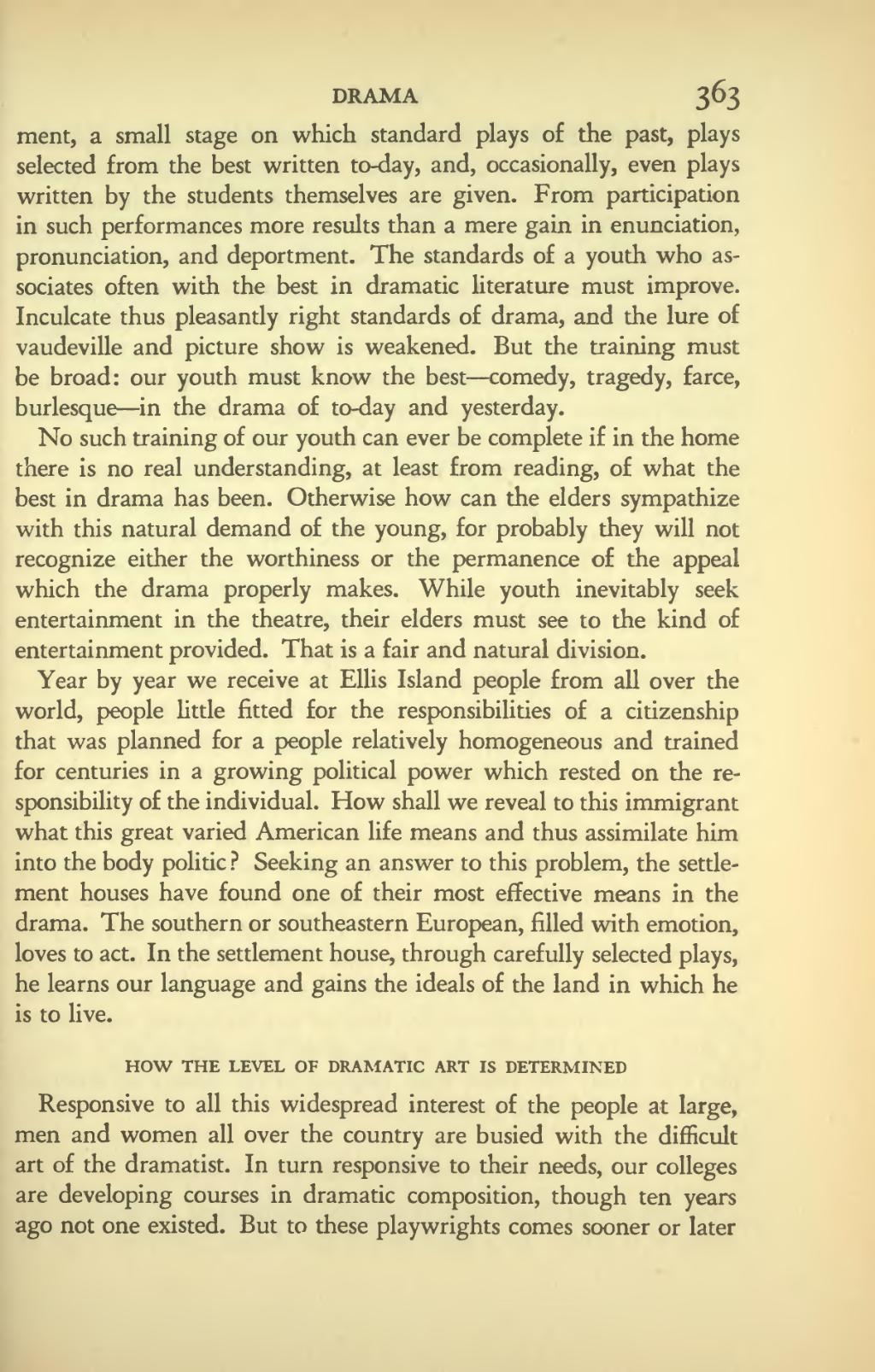ment, a small stage on which standard plays of the past, plays selected from the best written to-day, and, occasionally, even plays written by the students themselves are given. From participation in such performances more results than a mere gain in enunciation, pronunciation, and deportment. The standards of a youth who associates often with the best in dramatic literature must improve. Inculcate thus pleasantly right standards of drama, and the lure of vaudeville and picture show is weakened. But the training must be broad: our youth must know the best—comedy, tragedy, farce, burlesque—in the drama of to-day and yesterday.
No such training of our youth can ever be complete if in the home there is no real understanding, at least from reading, of what the best in drama has been. Otherwise how can the elders sympathize with this natural demand of the young, for probably they will not recognize either the worthiness or the permanence of the appeal which the drama properly makes. While youth inevitably seek entertainment in the theatre, their elders must see to the kind of entertainment provided. That is a fair and natural division.
Year by year we receive at Ellis Island people from all over the world, people little fitted for the responsibilities of a citizenship that was planned for a people relatively homogeneous and trained for centuries in a growing political power which rested on the responsibility of the individual. How shall we reveal to this immigrant what this great varied American life means and thus assimilate him into the body politic? Seeking an answer to this problem, the settlement houses have found one of their most effective means in the drama. The southern or southeastern European, filled with emotion, loves to act. In the settlement house, through carefully selected plays, he learns our language and gains the ideals of the land in which he is to live.
HOW THE LEVEL OF DRAMATIC ART IS DETERMINED
Responsive to all this widespread interest of the people at large, men and women all over the country are busied with the difficult art of the dramatist. In turn responsive to their needs, our colleges are developing courses in dramatic composition, though ten years ago not one existed. But to these playwrights comes sooner or later
